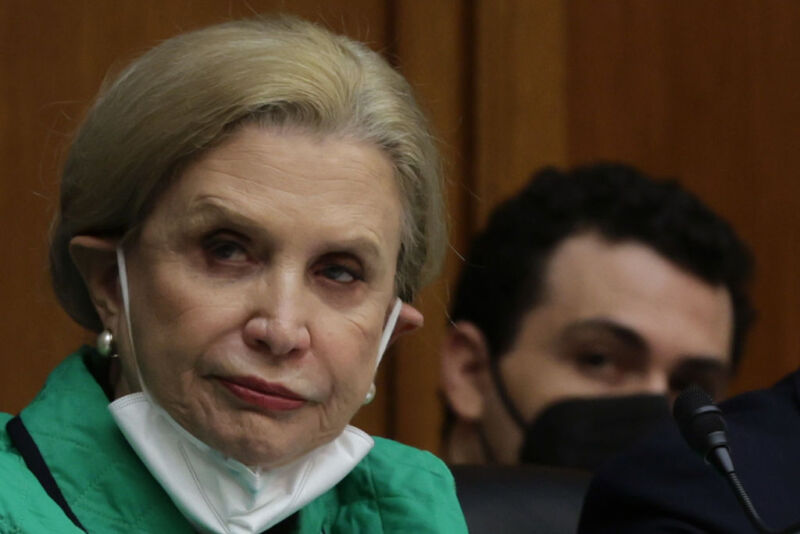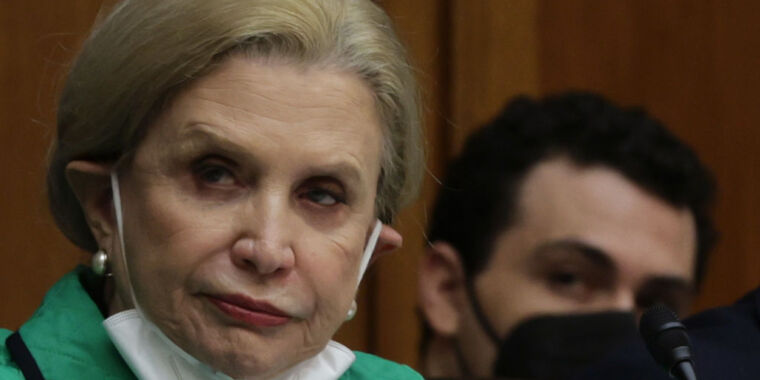
Online verification through ID.me was supposed to help the Internal Revenue Service (IRS) prevent widespread fraud while quickly delivering unemployment benefits to those who needed them most during the pandemic.
Instead, wait times to get verified ran up to 10 hours, and in one case in California, as much as three days. A six-month investigation by the House Oversight Committee found evidence that ID.me “downplayed excessive wait times,” hiding the problem from federal and state agencies by only providing data related to successful connections, Politico reported. This likely kept aid out of reach for those most in need, whose access to the technology was not reliable enough to stay connected due to significantly delayed wait times.
In a statement, the chair of the House Committee on Oversight and Reform, Representative Carolyn Maloney (D-NY), described the evidence emerging from the investigation as “appalling.” The Chairman of the Select Subcommittee on the Coronavirus Crisis, Rep. James Clyburn (D-SC), expressed disappointment that ID.me has not performed as a partner in the US effort to disburse aid quickly.
“Congress acted quickly at the outbreak of the coronavirus pandemic to ensure that 22 million newly unemployed Americans received unemployment benefits to pay their rent or mortgage and keep food on their tables,” Clyburn said in a statement. “Companies tasked with implementing critical programs in a national crisis must be able to meet the needs of the people targeted by those programs. We must continue to work to ensure that companies hired to implement critical programs are up and running in the future.”
The House committees’ investigation also turned up allegations that ID.me was making “unfounded claims” to state and federal agencies about how much pandemic fraud was taking place. This, the press release said, was “an apparent attempt to increase demand for its identity verification services”.
“Despite repeated requests, ID.me was unable to provide the committees with any methodology it used to support its CEO’s claim in June 2021 that ‘America has lost more than $400 billion in fraudulent claims’ for unemployment benefits, or even ‘many as 50 per cent’. of all unemployment funds,” the press release said.
While Blake Hall, CEO of ID.me, estimated that about $414 billion had been lost – with seemingly no evidence to support this claim – the Department of Labor Office of Inspector General estimated the actual figure was 10 times less, closer at $45.7 billion. The only sources ID.me provided to support its much higher estimate predated the company’s estimate and, in one instance, were based on the company’s estimate and not any other analysis.
ID.me told Ars it had nothing more to add and referred Ars to a company statement and a post on LinkedIn where Hall disputed the investigation’s findings.
“Today, House Oversight released a statement inaccurately accusing me of using a fraud allegation to win identity verification contracts for unemployment,” Hall wrote on LinkedIn.
“ID.me was already under contract to 43 government agencies, including 26 state unemployment agencies, before I ever estimated $400 billion in improper unemployment benefits,” Hall wrote. “We released our estimate as concerned citizens shocked by the scale of fraud we witnessed in several states. Any claim that we made a fraud claim to advance our business ignores the fact that 43 agencies chose ID.me before the statement was ever made.”
Last month, ID.me reported that its online identity verification services continued to be used by 30 states and 10 federal agencies.

